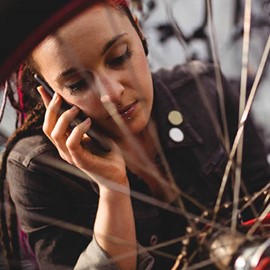
When you are self-employed, it may seem quite easy to slip some personal expenses through the business.
Lines between personal and business finances are easily blurred, particularly in the early days of a start-up, so you may be tempted to buy groceries or pay school fees from business funds.
Even worse, all your money may be intertwined in one bank account. Falling into these traps creates many problems down the line, not least of all from a tax perspective.
Do it right from the get-go
The rule is simple: keep your personal and business affairs separate from the start, even if you’re a sole ![]() proprietor.
proprietor.
Open a separate business bank account and only use it for legitimate business expenses. If you don’t, record keeping will be a challenge, impacting on your cashflow, payroll, debtors and even your ability to measure whether your business is growing.
Why mixing the money is bad for business
LOOK THE PART A business bank account is far more professional than using a personal bank account and shows clients and investors that you’re serious about your business. Combine it with a registered business name and company logo for even greater impact. You’ll also be able to build up a track record with creditors, possibly leading to better interest rates if you need financing in future. A business bank account is far more professional than using a personal bank account and shows clients and investors that you’re serious about your business. Combine it with a registered business name and company logo for even greater impact. You’ll also be able to build up a track record with creditors, possibly leading to better interest rates if you need financing in future. |
Paying yourself
You need cash to pay your personal expenses, and there are different ways to achieve this, depending on the business structure.
Calculating your salary
Deciding how much to pay yourself can be tricky. There are no hard and fast rules and you need to consider your personal expenses and balance this with what the business can afford to pay.
Keep your personal expenses very lean in the early days of the business – there’s no point buying a flashy car or racking up other personal expenses if you can’t draw an income to cover these. There may also be tax implications, and a tax consultant or accountant can guide you through this.
|
TIPS FOR BUSINESS OWNERS
|
